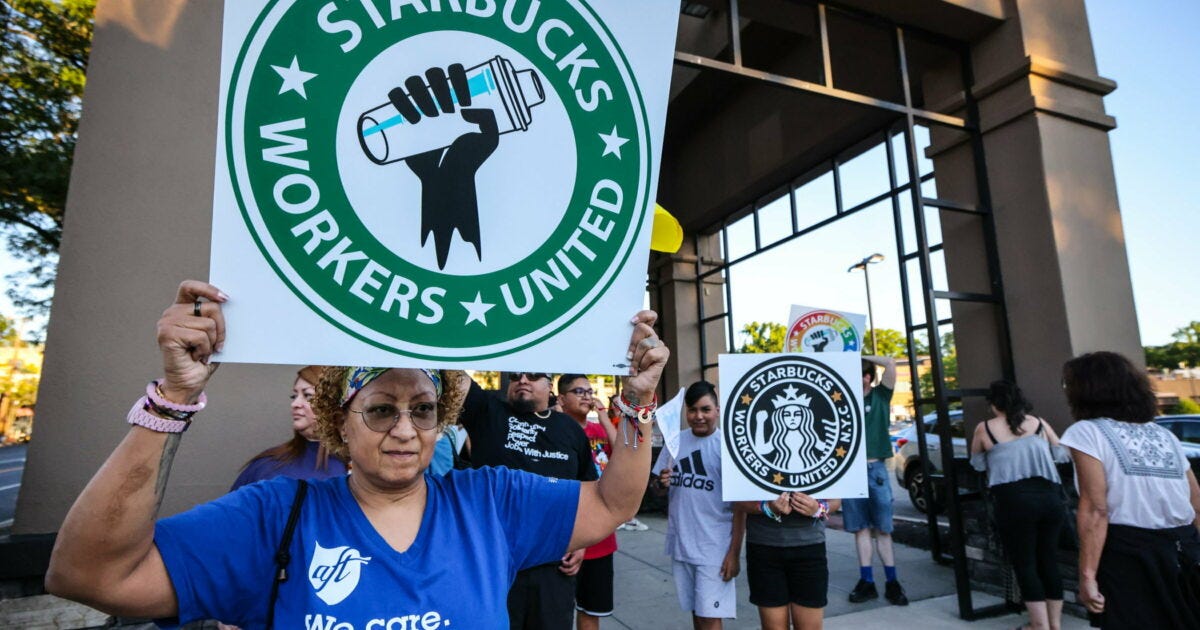03/15/2024: Starbucks Challenges Constitutionality of Administrative Make-Whole Remedies.
Also, another bulletin board case.
Starbucks Corporation, JD-14-24, 01-CA-299987 (ALJ Decision). An employee posted pro-union materials on the back-of-the-house refrigerators and was retaliated against for doing so. Because the employer otherwise allowed employees to post things on these refrigerators, not allowing the posting of pro-union materials and then disciplining an employee for doing so constitutes disparate enforcement against union activity and thus violates Sections 8(a)(3) and 8(a)(1) of the NLRA. The general counsel also alleged that the employer unlawfully interrogated employees for posting union material and began strictly enforcing the dress code in retaliation for union activity. The ALJ did not agree.
Starbucks Coffee Company, 04-CA-252338 (Third Circuit Brief). In the underlying proceeding, the Board found that the employer retaliated in a variety ways against two union activists, including by eventually discharging them. On appeal, Starbucks challenged these factual findings, but primarily challenged the Board’s ordered remedy, which was to make these two employees “whole for any loss of earnings and other benefits, and for any other direct or foreseeable pecuniary harms suffered as a result of the discrimination against them.” Starbucks claims that this remedy amounts to “compensatory damages” and therefore exceeds the remedies permitted by Section 10(c) of the NLRA. Under Section 10(c), the Board can order a “person to cease and desist from such unfair labor practice, and to take such affirmative action including reinstatement of employees with or without backpay, as will effectuate the policies of this Act.” Starbucks also argues that awarding compensatory damages through an administrative proceeding violates the 7th amendment right to a trial by jury. In its brief, the NLRB obviously takes the opposite view and also argues that Starbucks’s arguments about compensatory damages are barred because they were not properly raised in the underlying proceeding.
Employees do not have a freestanding right to post union material on company bulletin boards or, in the Starbucks Corporation case above, on a fridge that is used like a company bulletin board. If an employer has a general policy against that sort of thing and consistently enforces it, that’s fine. But, as explained in Honeywell (1982), if an employer generally allows employees to post non-work things on the bulletin board, as many do, it cannot specifically discriminate against the posting of pro-union materials without violating the NLRA.

